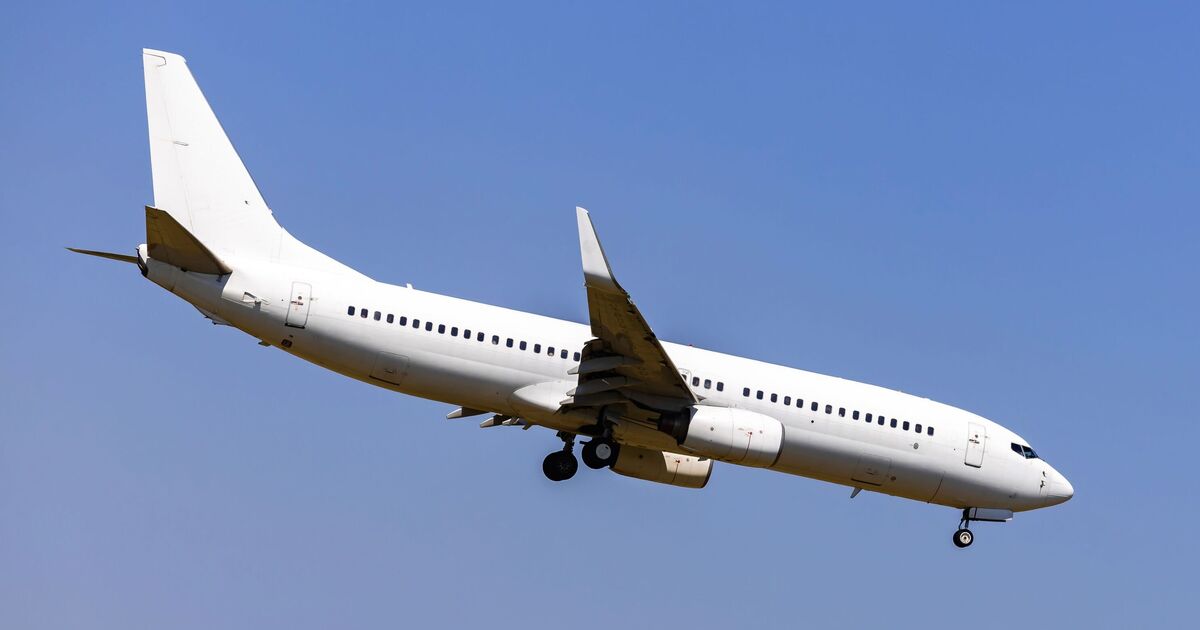
The EU Air Safety List includes airlines that don’t meet international safety standards (Image: Getty)
The surge in plane crashes worldwide, including deadly incidents in Washington DC, Philadelphia, the Philippines, Alaska, and most recently in São Paulo, has recently raised alarms about global aviation safety.
In December, the EU issued an updated list with the 15 countries and 11 airlines completely banned due to inadequate safety oversight by their national aviation authorities.
The EU Air Safety List (ASL) includes airlines that don’t meet international safety standards, banning them from operating in, to, and from the EU.
The report included a list of 129 airlines are banned, including 100 from countries with poor safety oversight and 22 from Russia.
The EU added Air Tanzania, Air Zimbabwe, Avior Airlines, Blue Wing Airlines, Iran Aseman Airlines, Fly Baghdad, Iraqi Airways, and several others to its Air Safety List, banning them from operating within EU airspace due to unresolved safety concerns.

Air Tanzania was planning to operate in Europe but now faces an indefinite halt (Image: Getty)
Air Tanzania was planning to operate in Europe but now faces an indefinite halt until safety improvements are made.
Pakistan International Airlines (PIA), on the other hand, regained approval to operate in the EU after addressing safety issues.
Apostolos Tzitzikostas, the EU’s commissioner for sustainable transport and tourism, said: “We strongly urge Air Tanzania to take swift and decisive action to address these safety issues.
“I have offered the commission’s assistance to the Tanzanian authorities in enhancing Air Tanzania’s safety performance and achieving full compliance with international aviation standards.”

Plane crash in Washington D.C. (Image: Getty)
The list of the 15 countries published in December where all airlines are banned are:
Afghanistan
In November 2010, the EU banned all Afghan airlines due to inadequate safety protocols and failure to meet international safety standards.
Angola
Angola’s airlines have been banned following multiple incidents, including a fatal crash in October 2017 and several others since 2000.
Armenia
In 2020, all Armenian carriers were banned by the EU, which later confirmed the ban in December 2022 due to unsatisfactory safety improvements, making Armenia the only European country fully banned from operating in EU airspace.
Congo-Brazzaville/Republic of the Congo (ROC)
All Congolese airlines are banned, including Equaflight Services and Trans Air Congo, due to poor safety oversight.
Democratic Republic of the Congo (DRC)
All airlines from the DRC are banned by the EU, following several fatal incidents, including a 2021 crash involving Malu Aviation.
Djibouti
Djibouti’s airlines have been banned by the EU since 2009 due to poor safety standards, as rated by ICAO.
Equatorial Guinea
The EU banned all airlines from Equatorial Guinea due to consistently poor safety records, including a fatal crash in 2005.
Eritrea
Eritrean airlines were banned by the EU in 2012 following unresolved safety concerns and inadequate measures from the country’s aviation authorities.
Kyrgyzstan
All airlines from Kyrgyzstan were banned by the EU due to concerns about aircraft age as well as fatal accidents in 2008 and 2017.

Airport in Zanzibar island, Tanzania (Image: Getty)
Liberia
Liberia’s airlines remain banned by the EU, despite no active Liberian-owned airlines since 2006, following fatal crashes in 2002 and 2013.
Libya
In 2014, the EU banned all Libyan airlines due to the country’s inability to meet international safety standards amid ongoing instability.
Nepal
All Nepali airlines have been banned by the EU since 2013, following multiple fatal crashes, including a 2023 incident that killed 72 people. Another fatal Yeti Airlines plane crash also took place in July 2024 killing 18 people.
São Tomé and Príncipe
The EU banned all airlines from São Tomé and Principe in 2009 due to non-compliance with international safety standards.
Sierra Leone
All Sierra Leonean airlines are banned by the EU, after a 2007 helicopter crash killed 22 people.
Sudan
Sudanese airlines have been banned by the EU since 2010 due to poor safety performance and repeated non-compliance with international aviation standards.










